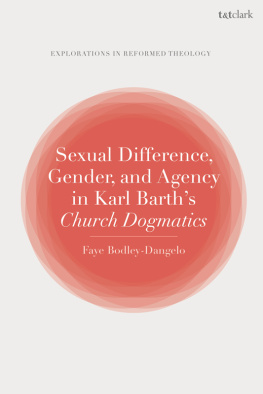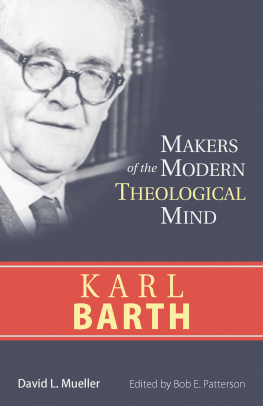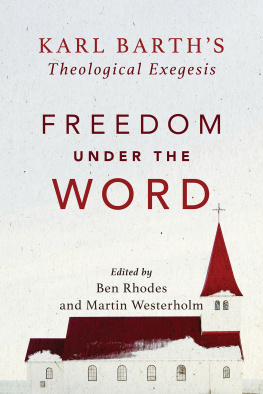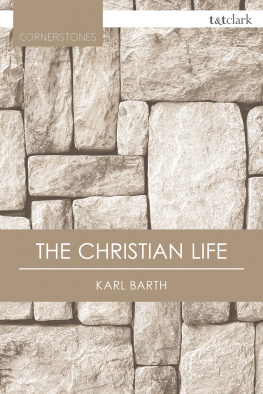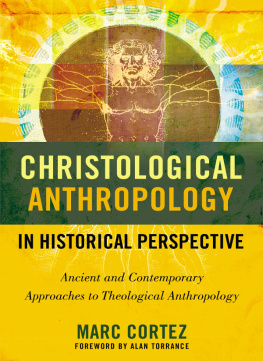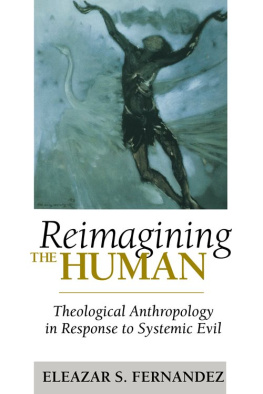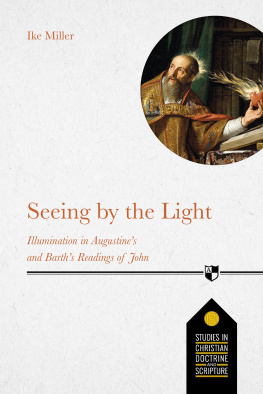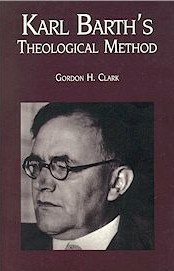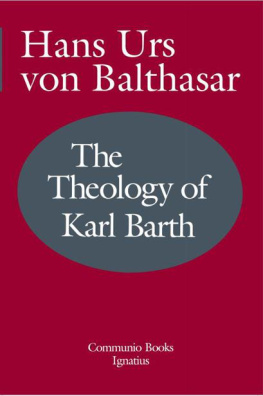SEXUAL DIFFERENCE, GENDER,
AND AGENCY IN KARL BARTHS
CHURCH DOGMATICS
T&T Clark Explorations in Reformed Theology
Series Editors
Paul T. Nimmo
Paul Dafydd Jones
Editorial Board
Christophe Chalamet
David A. S. Fergusson
Angela Dienhart Hancock
Leanne Van Dyk
Matthias D. Wthrich
Volume II
SEXUAL DIFFERENCE, GENDER,
AND AGENCY IN KARL BARTHS
CHURCH DOGMATICS
Faye Bodley-Dangelo

To Suzannah Gail Bodley
This book is a revision of my ThD dissertation at Harvard Divinity School, which began under the guidance of Ronald F. Thiemann. Ron died before the first chapter was written, but his guidance through the first stages of my research left an indelible mark upon the project. I would like to give a special word of thanks to my dissertation committee. Amy Hollywood, my dissertation director, introduced me to the trajectory of gender theory that has deeply shaped my work. Offering critical feedback and editing on multiple drafts, she patiently guided the project from its earliest stages. Francis X. Clooney, S. J. gently and persistently nudged me toward a more charitable and constructive reading of Barth. Paul Dafydd Jones joined my committee after Rons death. Without his enthusiasm, support, and indispensable guidance, I would not have stayed the course. He has given generously of his time to reading, editing, and providing critical feedback from the first chapter of the dissertation to the books final manuscript.
This project has been deeply enriched and shaped by the intellectual life and community at Harvard Divinity School. I must give a special word of thanks to Emily Click, for the encouragement, friendship, and pastoral care she has given me and my family over these past years. Sarah Coakley was a theological mentor in the nascent stages of this project and profoundly shaped my critical engagement with theological texts. I am grateful to Jon Levenson, Kevin Madigan, and Ahmed Ragab for their support of my theological and professional development. A number of colleagues have been a source of encouragement and comradery along the way, among them, Brad Bannon, Philip Francis, Nan Hutton, Piotr Malysz, Mark McInroy, Mark Scott, Jen Wade, and Bryan Wagoner.
Beyond Harvards community, I recall with gratitude the influence of several teachers whose courses, mentoring, and guidance directed me on the path of study that has culminated in this project. The late Donald Bowdle of Lee University first introduced me to reformed systematic theology and to the writings of Karl Barth. Kurt Richardson further supported this interest and guided my first foray into the topic of gender in Barths theology, in the form of a masters thesis at Gordon-Conwell Theological Seminary, where I was first introduced to feminist hermeneutics by the late Catherine Kroeger. Khaled Anatolios guided my research into the late antiquity trinitarian and christological texts that have provided the theological framework for this project.
I have deeply benefitted from conversations with members of a community of Barth scholars whom I have met at many conferences and meetings over the past decade, among them George Hunsinger, Bruce McCormack, David Congdon, and Travis McMaken, and especially Kaitlyn Dugan, Gillian Breckenridge, and Kendall Cox. I was given invaluable opportunities to present portions of this project at the Karl Barth Society of North Americas annual meeting at the American Academy of Religion in 2014 and 2016, and also at the Karl Barth Conference hosted by Princeton Theological Seminary in 2014 and 2018. The process of revising the dissertation into a book has been an extremely positive one thanks to the encouragement, support, careful editing, and feedback of Paul Dafydd Jones and Paul T. Nimmo, editors of T&T Clark Explorations in Reformed Theology series to which this book belongs. I am deeply grateful to both of them for the opportunity to bring this project of many years to publication.
My husband, Mike, has been an enduring source of encouragement, support, and love, and a critical dialogue partner at every stage. He never gave up on my ability to complete this work, even when I did. Our daughter, Suzannah, has provided much-needed distraction, with her persistent, sunny interruptions and joyful exuberance. The friendship, comradery, and challenging debates with my dear friend Marta Napiorkowska have sustained me through the long writing process. I also want to thank Maggie Mulqueen for continually urging me to bring this project to completion.
Finally, I want to thank my parents, Sue and Lawrence Bodley. My father, who first introduced me to theological texts as a child, deeply engrained in me the interests that set me on this theological trajectory, and he passed on to me his own set of Church Dogmatics before this project began. My mothers character, fortitude, and her thoughtful critical spirit are a constant inspiration, as are her optimism, patience, and love. I dedicate this book to her.
Portions of this book appear in print elsewhere. I gratefully acknowledge permission to incorporate into .
In recent decades, Barths theology has invited a variety of nonfoundational and postmodern theological readings and appropriations. It has been used as a resource for theological projects that refuse central foundational principles, that are open to multiple and contextual ways of knowing, that resist bringing multiple sites of particularity under a single, totalizing, universal framework.recommendation that women in abusive relationships should inspire men to better behavior through quiet self-restraint. This ordering manifests also in his depiction of the feminist movement as an envious grasping after the God-given agential prerogative of men. It is not surprising, then, that Barth has often been viewed as a poster-child for modern patriarchal theologies and, more recently, for heterosexist and complementarian theologies.
These features of Barths theological anthropology have evoked a great deal of criticism and been subjected to a number of reconstructive interventions, which, until relatively recently, have focused on Barths ordering of the sexes but not the heteronormativity of his theological anthropology. Many critics appreciate the central place that Barths theological anthropology gives to the relationships between the sexes and direct their critical and reconstructive energies to his subordination of women to men. They examine the ways in which Barth grounds the ordering between the sexes in a recurring pattern of asymmetrical ordered relationships and his selection and interpretation of biblical texts to support this ordering. This dominant approach takes its cue from Barths references to an analogy of relations, in which he speaks of a correspondence in a series of relationships: Father and Son ad intra, Father and Son ad extra, Christs divinity and Christs humanity, God and humanity, Yahweh and Israel, Christ and Church, heaven and earth, soul and body, and so forth. The driving question from this vantage point is whether the hierarchical ordering of the malefemale relationship is the unavoidable symptom of a pervasive pattern of asymmetrical ordering that favors one party over the other, or whether some of these relationships offer alternative resources for re-imagining an egalitarian mutual interaction between the sexes. This question has given rise to two trajectories of critique, one that locates internal resources for a constructive reconfiguration of Barths ordering of the sexes, and another that argues that even such resources are too deeply distorted by his systemic ordering.
Next page
